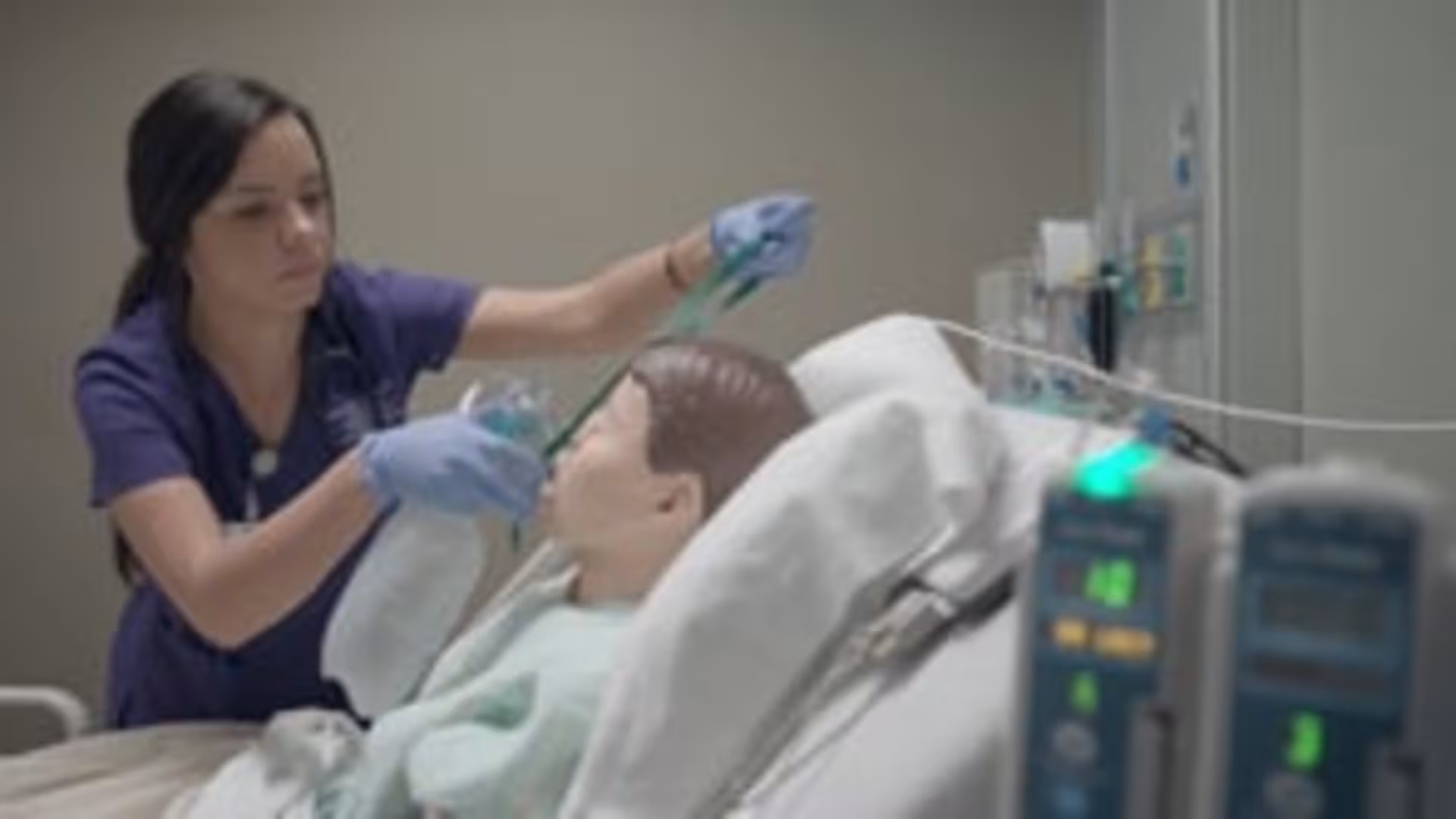
Master of Science in Nursing (MSN): Public Health Nursing Emphasis
Focus Your Nursing Studies and Career in Public Health

Grand Canyon University's Master of Science in Nursing with an Emphasis in Public Health Nursing can prepare you to be actively involved in the coordination, planning, development, implementation and evaluation of health programs and services. It is designed for nurses interested in disease prevention and community and population health.
Public health nursing is a nursing specialty that focuses on population health in an effort to prevent disease and disability and promote wellness. As an aspiring public health nurse, you will have the opportunity to define, assess and help create solutions to current public health concerns. You will also have the opportunity to evaluate emerging treatments and policies that can help change the public health landscape and reduce the prevalence of disease, injuries and other medical conditions.
Online: $600 per credit [More Info]
Up to 12 credits or 1/3 of the total program requirements in transfer (whichever is less)
Credits: Fill out the Lopes Eval to find out what will transfer
Admission requirements may differ based on degree level, program and modality or transfer status. Some programs of study may require a higher GPA and/or other qualifying criteria for admission.
Please review full admission and program requirements in the University Policy Handbook.
Earn Your Master’s in Nursing Online
You can explore public health nursing competencies from virtually anywhere with convenient online classes from GCU. Our interactive e-learning platform enables you to access course material digitally and enjoy academically stimulating discussions with your peers and instructors while you continue to meet your current commitments. You can benefit from the same quality of instruction online as you would in a classroom on campus.(See disclaimer 1 )
This Degree Is Offered Online
Public Health Nursing Courses
In this master’s in nursing program, you will examine content and knowledge from both nursing and public health fields. You will explore public health policies, theories, principles and their applications to practical situations. As part of the program, you will complete an evidence-based practice project tailored to your specific area of interest. This program also culminates with a practicum experience, in which you will apply public health nursing concepts and skills in a public health setting.
As a graduate of the master’s in nursing: public health nursing emphasis, you can provide population-based care that is respectful of human dignity and patient autonomy in accordance with Christian principles. You can recognize the unique role patients’ spirituality and your own spirituality plays in healthcare decision-making processes and management of care. You will be taught to advocate for ethical healthcare policies and promote public health and wellness in efforts to reduce health disparities, as well as improve the quality of life for diverse communities and populations.
Competencies for this program include:
Other MSN Emphases
Here are other available MSN emphasis programs you can choose from to tailor your degree to your career goals:
Career Paths for Graduates With a Public Health Nursing Emphasis
Public health nursing courses can prepare you to pursue a broad range of careers in this subfield.
Graduates may go on to explore positions in areas such as:(See disclaimer 2)
Public health
Clinical research
Epidemiology
Health services
Clinical trials
Medical writing
Earn Your Master’s in Nursing From an Institutionally Accredited University
As you consider your choice of schools and programs for your master’s in nursing, it’s important to ensure that the school you choose is institutionally accredited. Accreditation is a reflection of the quality of the school. GCU is an institutionally accredited university that pursues academic excellence.
The baccalaureate degree programs in nursing, the master’s degree programs in nursing, the Doctor of Nursing Practice programs and the post-graduate APRN certificate programs at Grand Canyon University are accredited by the Commission on Collegiate Nursing Education (https://www.ccneaccreditation.org).
For more information on the accreditation of nursing programs and other university approvals, please visit our University Accreditation and Regulations page.
MSN: Public Health Nursing Emphasis FAQs
Before heading back to school, take the time to carefully consider your career path choices so that you can make an informed decision for your future. Read through our frequently asked questions to learn more about public health nursing and earning your MSN.
What is the difference between a public health nurse and community health nurse?
Where can a public health nurse work?
What is the role of a public health nurse?
Why is public health nursing important?
How can I prepare myself for the MSN: Public Health Nursing emphasis?
Program Curriculum
Core Courses

Prepare to make a positive impact on the health of whole communities as a public health nurse. Apply today for enrollment in GCU’s MSN: public health nursing emphasis program. Learn more by filling out the form on this page.
-
Clinical, practicum and immersion hours completed locally.
- Indeed. (2023, March 16). Jobs You Can Pursue With a Master’s in Public Health (MPH). Indeed. Retrieved Sept. 22, 2023.
- Indeed. (2022, June 24). Public Health Nursing Vs. Community Health Nursing. Indeed. Retrieved Sept. 22, 2023.
- Association of Public Health Nurses. (n.d.). What Is a PHN? Association of Public Health Nurses. Retrieved Sept. 22, 2023.
- CDC NERD Academy. (n.d.). Public Health Nurse. Centers for Disease Control and Prevention. Retrieved Sept. 22, 2023.
- White, A. (2022, Nov. 21). Public Health Nursing and Its importance. Nursing CE Central. Retrieved Sept. 22, 2023.



